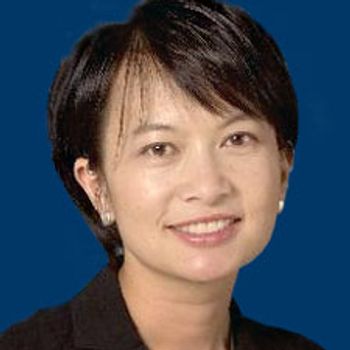
The first prospective study to investigate the use of immunotherapy in patients with squamous cell carcinoma of the anal canal demonstrated promising results following treatment with nivolumab.

Your AI-Trained Oncology Knowledge Connection!


The first prospective study to investigate the use of immunotherapy in patients with squamous cell carcinoma of the anal canal demonstrated promising results following treatment with nivolumab.
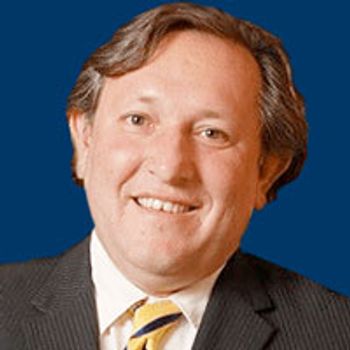
Treatment with ARQ-087 demonstrated promising signs of clinical activity with a manageable safety profile for patients with FGFR2 fusion-positive advanced and/or metastatic intrahepatic cholangiocarcinoma.

Adding selective internal radiation therapy with SIR-Spheres Y-90 resin microspheres to standard first-line chemotherapy significantly increased hepatic depth of response in patients with metastatic colorectal cancer.

IMAB362, a novel chimeric IgG1 backbone antibody highly specific for CLDN18.2, extended median overall survival by 4.8 months when added to standard chemotherapy in patients with advanced gastric cancer.
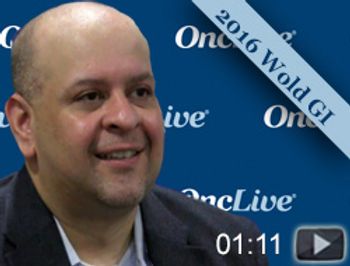
Dr. Navesh K. Sharma, associate professor of Radiology in the Division of Radiology and Oncology at Penn State Hershey Medical Center and section chief of Radiation Oncology at the Penn State Health St. Joseph Cancer Center, discusses that age should not be a deciding factor in giving internal radiation to patients with liver cancer.

Dr. Jordi Bruix, MD, head of the Barcelona Clinic Liver Cancer (BCLC) at University of Barcelona, discusses the major impact that regorafenib (Stivarga) will have for the treatment of hepatocellular carcinoma (HCC).
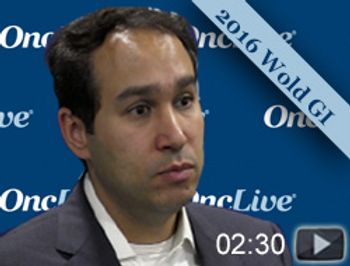
Dr. Adam Bass, MD, Dana-Farber Cancer Institute, discusses the causes for different types of gastric cancer.

Patients with stage Ib-IVa resectable gastric adenocarcinoma undergoing surgery with curative intent had similar survival outcomes regardless of whether they received chemotherapy or chemoradiotherapy after surgery.

Eileen M. O’Reilly, MD, associate director for Clinical Research, David M. Rubenstein Center for Pancreatic Cancer Research at Memorial Sloan Kettering Cancer Center, discusses factors that patients and oncologists should consider when developing a treatment plan for pancreatic cancer.
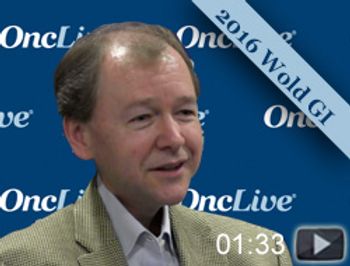
Daniel Sargent, PhD, professor of Oncology and Biostatistics, Mayo Clinic in Rochester, Minnesota, discusses the IDEA initiative, which is an international study to examine if patients with colon cancer would benefit from reducing the duration of adjuvant therapy from 3 months to 6 months to reduce side effects and cost.

Adding MM-398 (irinotecan liposome injection; nal-IRI; Onivyde) to 5-fluorouracil and leucovorin had no negative effect on quality of life while significantly improving overall survival in patients with metastatic pancreatic cancer.
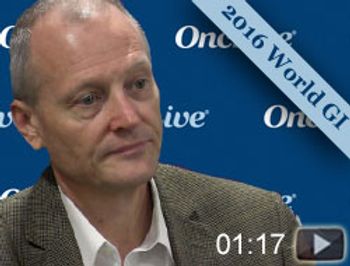
John L. Marshall, MD, chief, Division Of Hematology/Oncology, Georgetown University Hospital Associate Director, clinical research, Lombardi Comprehensive Cancer Center at Georgetown University Hospital, discusses the difference between squamous and adenocarcinoma in esophageal and gastric cancer.

Combined inhibition of the PD-L1/PD-1 axis with atezolizumab (Tecentriq) and the MEK pathway with cobimetinib (Cotellic) showed promising clinical activity and a good safety profile in heavily pretreated patients with microsatellite stable metastatic colorectal cancer.

Second-line treatment with regorafenib (Stivarga) improved overall survival by 2.8 months compared with placebo for patients with unresectable hepatocellular carcinoma who progressed on sorafenib (Nexavar).

Inotuzumab ozogamicin demonstrated significantly improved progression-free survival and complete remission rates compared with chemotherapy for patients with relapsed or refractory acute lymphoblastic leukemia.

Final 5-year efficacy and safety data from the phase III COMFORT-I trial confirm previous findings that ruxolitinib confers a significant benefit in patients with intermediate-2 and high-risk myelofibrosis.

Patients with acute myeloid leukemia who are cured after allogeneic hematopoietic stem cell transplantation produce antibodies that destroy leukemia cells.
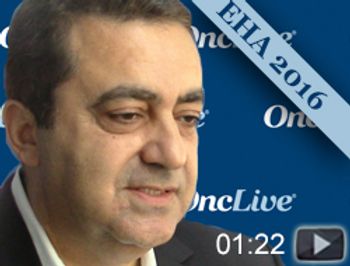
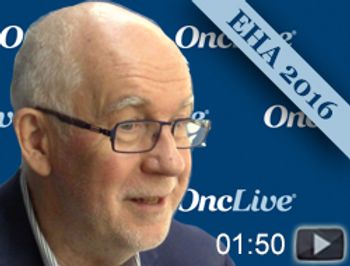

Combining the CD38-targeted antibody daratumumab with lenalidomide and dexamethasone reduced the risk of disease progression by 63% versus lenalidomide and dexamethasone alone in patients with relapsed/refractory multiple myeloma, according to findings from the phase III POLLUX (MMY3003) trial.

A host of novel agents that target distinct molecular targets are pushing complete remission rates beyond historical boundaries for patients with acute myeloid leukemia.
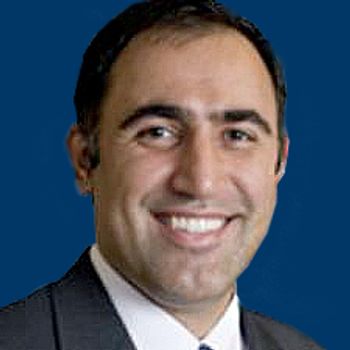
Frontline treatment with the CD33-directed antibody-drug conjugate vadastuximab talirine plus a hypomethylating agent induced deep and durable remissions for older patients with acute myeloid leukemia.
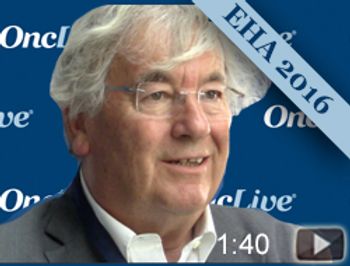
Christian Gisselbrecht, MD, a Professor of Haematology in the Haemato-Oncology Department of Hôpital Saint-Louis, at Diderot University, Paris, discusses stratifying refractory disease in aggressive diffuse large b-cell lymphoma (DLBCL).

Wojciech Jurczak, MD Head of Lymphoma, Department of Hematology, Jagiellonian University, Kopernika, Poland, discuses a subgroup analyses of diffuse large b-cell lymphoma (DLBCL) and indolent lymphoma cohorts from a phase IIa study of single-agent MOR208 in patients with relapsed or refractory non-Hodgkin's lymphoma (NHL).

Tyrosine kinase inhibitors can safely be halted in select patients with chronic phase chronic myeloid leukemia followed a maintained deep molecular remission.

The median overall survival with the anti-CD19 immunotherapy blinatumomab was 7.7 months versus 4 months with standard chemotherapy in patients with Philadelphia chromosome–negative relapsed or refractory B-cell precursor acute lymphoblastic leukemia, according to results from the phase III TOWER study.

Ibrutinib continued to demonstrate impressive antitumor activity in a pooled analysis of 243 patients with deletion 17p chronic lymphocytic leukemia.


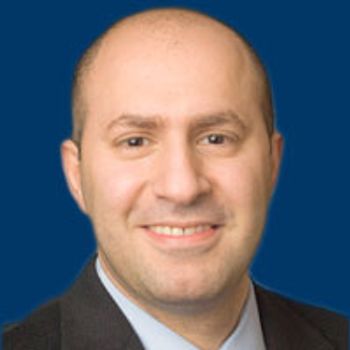
Cabozantinib reduced the risk of death by 34% compared with everolimus in patients with previously treated advanced renal cell carcinoma, according to updated data from the phase III METEOR trial.